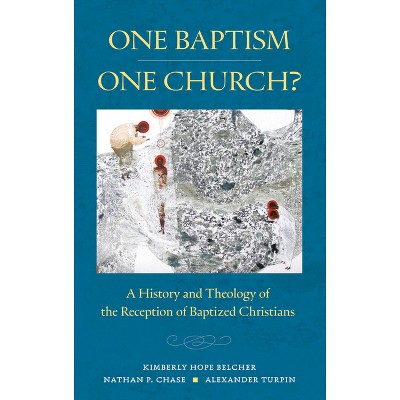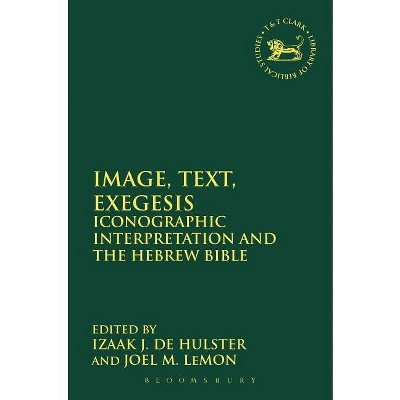Daughters in the Hebrew Bible - by Kimberly D Russaw (Paperback)

$47.99 when purchased online
Target Online store #3991
About this item
Highlights
- Combining philological data, social-science models, and cross-cultural comparisons, Russaw examines the systems that constrict biblical daughters and the strategies they employ when hostile social forces threaten their well-being.
- About the Author: Kimberly D. Russaw is visiting assistant professor of religion and philosophy at Claflin University.
- 238 Pages
- Religion + Beliefs, Sexuality & Gender Studies
Description
About the Book
Combining philological data, social-science models, and cross-cultural comparisons, Russaw examines the systems that constrict biblical daughters and the strategies they employ when hostile social forces threaten their well-being.Book Synopsis
Combining philological data, social-science models, and cross-cultural comparisons, Russaw examines the systems that constrict biblical daughters and the strategies they employ when hostile social forces threaten their well-being.Review Quotes
An illuminating study, especially in its terminological discussion.
In Daughters in the Hebrew Bible, Kimberly D. Russaw provides the scholarly community with a fascinating study of an overlooked population of characters in the biblical narrative. . . Russaw's text. . . is an important contribution to the feminist project of recovering the voices of those who are marginalized in biblical text. . . . Daughters in the Hebrew Bible is an interesting and useful contribution to biblical scholarship. . . this reviewer found it to be accessible by both specialist and non-specialist.
Like a keen investigative reporter or shrewd detective, ala Miss Marple, Sherlock Holmes, Jessica Fletcher, or Hercule Poirot, Kimberly Russaw deconstructs clues, reviews evidence and pushes traditional and exegetical boundaries in her seminal work, Daughters in the Hebrew Bible. While most scholarship has focused more on women as procreative vessels and patriarchal properties, this work analyzes unmarried daughters as relevant persons with character, value, and purpose amid systemic, oppressive patriarchy generating family structure and language of power and social stratification. Russaw beautifully orchestrates her strategies so we 'see' the daughters' positions of vulnerability and resistance, minus social status and community care accorded wives and widows. She tackles issues of virginity, inheritance, spatiality, and safety. Facing matters of function, industry, and sexual compliance, she shows that the socio-cultural structure of ancient Israel largely erased or hid their daughters. This is a cogent, clear, creative reading. Daughters is a must read for any scholars or practitioners interested in biblical women in general and daughters in particular during this era; and is a must read for contemporary daughters, their parents, friends, their siblings, and all authority figures to understand what it means to be daughter, how society diminishes daughters, and then begin to imagine healthy options for discourse and interaction.
Russaw engages feminist, literary, philological, and other social scientific methods, resulting in a comprehensive approach that illuminates ideologies and practices promoted in the biblical text and in other ancient contexts concerning daughters . . . I recommend this thought-provoking book that carefully and critically nuances the presence, roles, and agency of daughters in the Hebrew Bible.
Russaw, professor of religion and philosophy at Claflin University, has set out in this volume to address a significant lacuna in biblical scholarship, which, while in recent years devoting extensive attention to biblical women in general, has largely failed to pay attention to women as daughters. The resulting study is an engaging and wide-ranging work that looks at biblical daughters from several angles, including discussion of daughters in the family, "daughter language," and daughters and power. This is a decidedly scholarly work that attends closely to secondary literature and the original Hebrew (always translated). Nevertheless, non-specialists with a modicum of background in the Bible will find this a readable and engaging volume that does indeed open up to great profit an unexplored--yet recognizably important--aspect of the Hebrew Bible.
Russaw's is a welcome new voice. Her book examines the daughters of the Hebrew Bible with clear-eyed acumen. But Russaw also does much more: she becomes the daughters' advocate and addresses and speaks up for the marginalized of our own time. Bravo!
The simple title of this volume belies the sophisticated methodological approaches and the thorny issues Russaw addresses in her treatment of the largely neglected character of the biblical daughter. The author dismantles the construction of the daughter through her novel socio-historical and feminist analyses of a myriad of biblical texts. She brings biblical daughters out of the shadows and exposes the wide range of roles they fulfilled in family life to answer the question: "What about the daughters?" Based on compelling analyses, Russaw makes clear that there is no one depiction of the daughter in the Hebrew Bible but that nearly all daughters either accommodate or resist (or both) systems of power that are antagonistic to them.
About the Author
Kimberly D. Russaw is visiting assistant professor of religion and philosophy at Claflin University.Dimensions (Overall): 9.0 Inches (H) x 6.0 Inches (W) x .54 Inches (D)
Weight: .78 Pounds
Suggested Age: 22 Years and Up
Number of Pages: 238
Genre: Religion + Beliefs
Sub-Genre: Sexuality & Gender Studies
Publisher: Fortress Academic
Format: Paperback
Author: Kimberly D Russaw
Language: English
Street Date: February 6, 2020
TCIN: 1004683374
UPC: 9781978700505
Item Number (DPCI): 247-21-8394
Origin: Made in the USA or Imported
Shipping details
Estimated ship dimensions: 0.54 inches length x 6 inches width x 9 inches height
Estimated ship weight: 0.78 pounds
We regret that this item cannot be shipped to PO Boxes.
This item cannot be shipped to the following locations: American Samoa (see also separate entry under AS), Guam (see also separate entry under GU), Northern Mariana Islands, Puerto Rico (see also separate entry under PR), United States Minor Outlying Islands, Virgin Islands, U.S., APO/FPO
Return details
This item can be returned to any Target store or Target.com.
This item must be returned within 90 days of the date it was purchased in store, shipped, delivered by a Shipt shopper, or made ready for pickup.
See the return policy for complete information.











